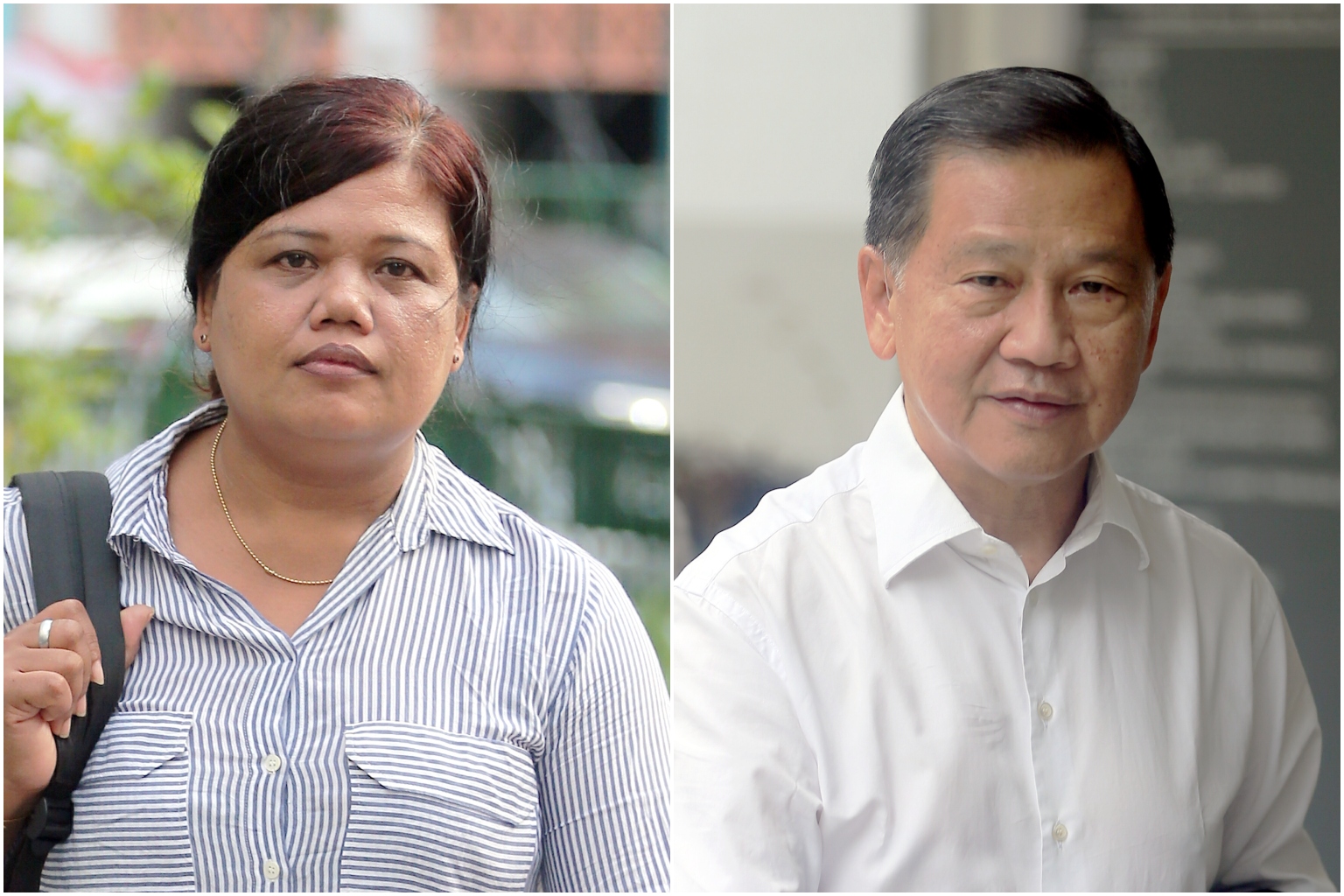Parliament: Review of Parti Liyani case shows no improper influence by Liew Mun Leong at any point, says Shanmugam
Sign up now: Get ST's newsletters delivered to your inbox

High Court Judge Chan Seng Onn said in his judgement that there was reasonable doubt about Mr Liew's (right) motive for making a police report against Ms Parti (left).
PHOTOS: ST FILE
Follow topic:
SINGAPORE - When Attorney-General (AG) Lucien Wong resigned from the board of CapitaLand in 2006, it was over differences of viewpoints with Mr Liew Mun Leong who was then the president and chief executive officer of the listed real estate group.
Given this history, Mr Wong had recused himself from the Attorney-General's Chambers' (AGC) recent internal review of the case involving Mr Liew's former maid Parti Liyani.
Home Affairs and Law Minister K. Shanmugam on Wednesday (Nov 4) disclosed this information in a ministerial statement in Parliament as he emphasised that the reviews by the police and the AGC have confirmed that there was no improper influence at any point in the case.
"I can be categorical, there was no influence by Liew Mun Leong. It was treated as any other theft case and handled accordingly," he said.
Questions on propriety had cropped up after High Court Judge Chan Seng Onn overturned Ms Parti's conviction and said in his judgment that there was reasonable doubt about Mr Liew's motive for making a police report against his former maid.
Mr Liew is a prominent businessman and was the chairman of Changi Airport Group as well as Surbana Jurong. He was also senior international business adviser at Singapore investment company Temasek and a board member of Temasek Foundation.
He resigned from these positions following public outcry after Justice Chan overturned Ms Parti's conviction.
The relationship between the AG and Mr Liew came under scrutiny particularly after the AGC announced that the AG would not be involved in the review of the case.
Some had suggested that the two men were close given that Mr Wong had been on CapitaLand's board of directors.
On Wednesday, Mr Shanmugam said the decision on whether to prosecute the maid was dealt with at the level of the deputy public prosecutors and their directors in AGC, and the AG did not know of the proceedings against Ms Parti until the case went for trial.
Setting out how such cases are handled, he said typically when AGC receives a file from the police, prosecutors will assess whether or not to charge or if any action has to be taken.
This assessment and the decisions are usually cleared by a director, and are not brought to the attention of the deputy chief prosecutor, chief prosecutor, deputy AG or AG unless they involve more serious or sensitive crimes, or where the AG's consent to prosecute is expressly required.
He added that neither Mr Liew, his family members or any intermediaries had approached the AGC on the case.
On why the AG recused himself from the AGC's internal review, the minister said: "The AG felt that given the history of difference between him and Liew Mun Leong, the perception of fairness may be affected if he oversaw the review."
"Thus, the AG had nothing to do with this case at any stage."
Similarly for the Police, its internal review shows decisions on the case were taken by the investigation officer (IO) and his immediate supervisor, and no one had lobbied or exerted pressure on them or anyone in a position to influence the investigations, he said.
"It didn't come to the attention of the senior management either at the Police or in the Ministry," he added.
Mr Shanmugam also pointed out that the case had been heard in open court in the State Courts in accordance with the rules.
"We have checked with the IO, his senior officer and the DPPs, they have confirmed there was no pressure or influence exerted on them by Liew Mun Leong or anyone acting on his behalf."
"And they handled this as they have handled other theft cases."

